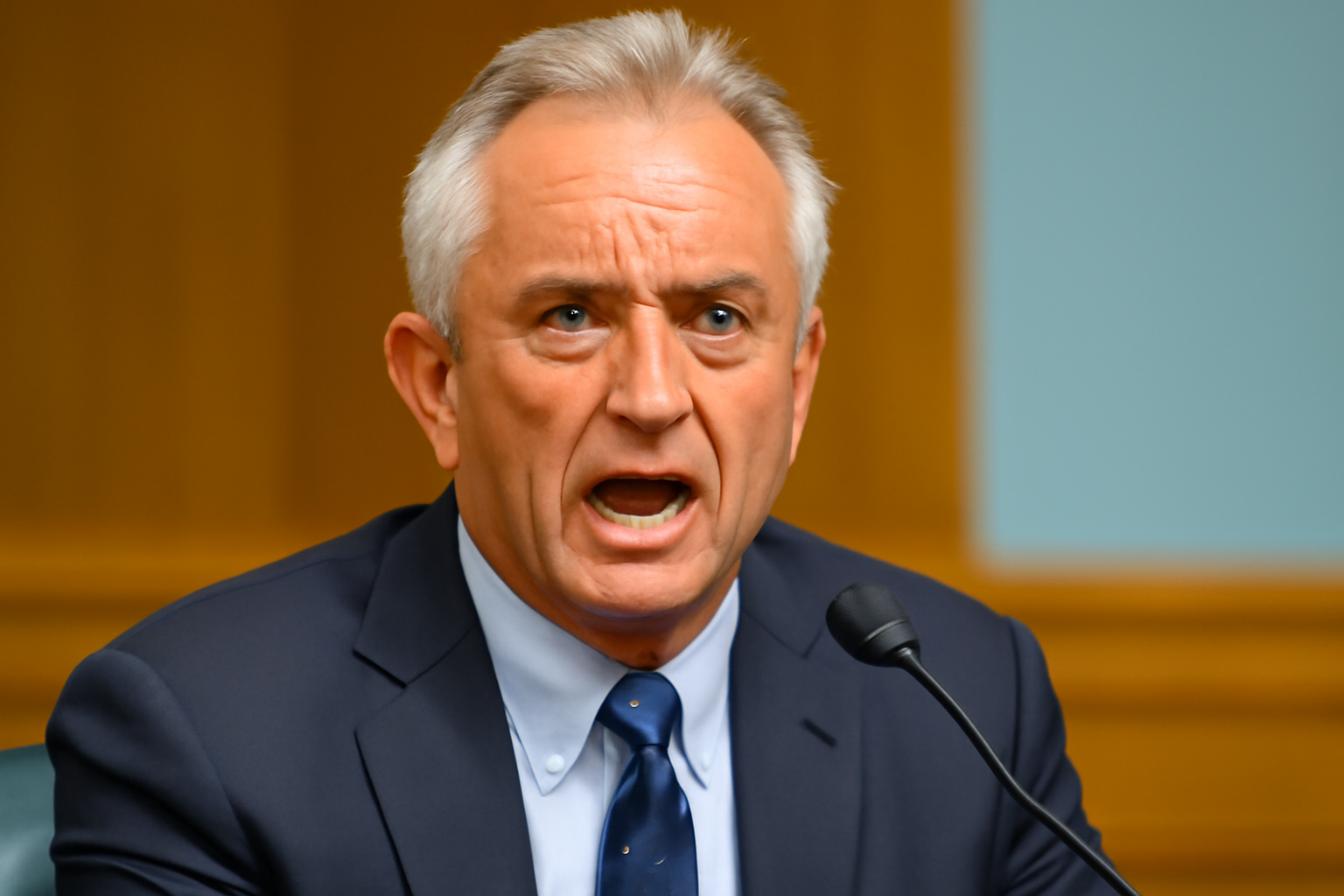
In a recent Senate hearing, Robert F. Kennedy Jr. made headlines with his controversial statements during a Health and Human Services (HHS) confirmation discussion. Kennedy, known for his vocal stance against certain health policies and his history of promoting controversial theories, once again found himself at the center of a storm.
The heated exchange took place when Kennedy was questioned by senators on various health-related topics. During his testimony, Kennedy reiterated his controversial stance on the impact of environmental factors on gender and health, which has drawn criticism from health experts and activists alike.
Environmental Concerns and Gender Identity
At the heart of the controversy is Kennedy's assertion that certain chemicals and pesticides are contributing to changes in gender identity among youth. This claim, which lacks substantial scientific backing, has been dismissed by many experts as unfounded and misleading.
"There is no credible scientific evidence to support the notion that pesticides or any other environmental chemicals can influence gender identity," stated Dr. Maria Lopez, a leading endocrinologist. "Gender identity is a complex interplay of biological, environmental, and cultural factors, and oversimplifying it to such a degree is both inaccurate and potentially harmful."
Kennedy's remarks have drawn sharp criticism from LGBTQ+ advocates who argue that such statements perpetuate myths and stigmatize transgender and gender non-conforming individuals. "These kinds of false narratives can fuel discrimination and misunderstanding," said Alex Chen, a spokesperson for a major LGBTQ+ rights organization.
Scientific Community's Response
In response to Kennedy's claims, scientists and health organizations have reiterated the importance of basing public health policies on robust scientific evidence. Many in the scientific community fear that such statements could undermine trust in legitimate health research and initiatives aimed at supporting LGBTQ+ youth.
"It's crucial that we rely on peer-reviewed research and expert consensus when discussing health policies," noted Dr. Emily Tran, a public health researcher. "Misinformation can have real-world consequences, especially for vulnerable populations."
Despite the backlash, Kennedy defended his statements in subsequent interviews, claiming that more research is needed to explore the potential links between environmental factors and changes in gender identity. However, without credible evidence, his stance remains controversial and widely criticized.
Implications for Public Health Policy
The incident has sparked a broader conversation about the role of misinformation in shaping public perception and policy. Health experts emphasize the need for policymakers to be well-informed and to communicate effectively with the public, particularly on sensitive issues related to gender and health.
"Policymakers have a responsibility to base their decisions on sound science," said Dr. Tran. "Public health is too important to be influenced by unverified claims and personal beliefs."
The debate also highlights the importance of education and advocacy in promoting understanding and acceptance of diverse gender identities. LGBTQ+ organizations continue to work towards creating a more inclusive society where individuals are respected and supported, regardless of their gender identity.
As the hearing concluded, it was clear that Kennedy's comments had struck a nerve, prompting calls for greater accountability and accuracy in public health discussions. The Senate hearing underscored the ongoing challenges faced by the LGBTQ+ community in combating misinformation and advocating for their rights.
In the end, the controversy surrounding Kennedy's remarks serves as a reminder of the critical importance of evidence-based discourse in shaping public policy and protecting vulnerable communities.
Related Posts
Triumphant Trans Woman Wins Legal Battle and Inspires Others to Stand Up for Their Rights
Breaking new ground: a landmark victory in transgender rights After battling in courtrooms and enduring endless challenges, Diana Portillo, a transgender woman, has secured a monumental victory in her decade-long fight against workplace discrimination. The result? Nearly $1 million awarded in a historic settlement. But this isn't just a win on paper—it represents a powerful precedent in combati [...]
Pride Month in Latin America: Protests and Demands for Equality
**Celebrating Pride and advocating LGBTQ+ rights in Latin America** Pride Month in Latin America was a lively mix where celebration met activism. Communities united, not just throwing a party but making a stand—demanding equality and pushing governments toward better protection and rights recognition. Throughout Latin America, pride events erupted in marches and cultural displays, each with a c [...]
Transgender Erasure Actions Implemented by National Park Service
```html Trump administration's impact on national park service and transgender recognition The Trump administration made notable moves in undermining transgender representation, which included directing agencies like National Park Service not include "T" and "Q" when they refered “LGBTQ” in any official communication. This move seems part a broader plan by this administration aimed at reducin [...]